The field of criminal justice draws professionals from disciplines that include legal, forensic, business, biology and chemistry—just to name a few. The diversity of academic and professional backgrounds reflects the breadth of criminal laws and possible criminal activity.
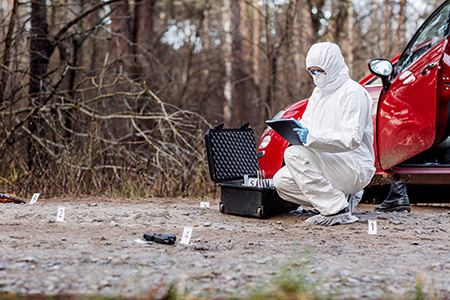
Criminologists offer their knowledge and training in sociology and psychology to present explanations and theories for why crimes occur and what leads a criminal offender to act. If you enter this profession, you will examine, not only evidence in particular cases, but take broader views of criminal activity. Depending on your work environment, you may wear the hat of profiler or consultant for criminal investigators, a social worker dealing with criminal defendants, or a policy maker seeking to address the root causes of crime.
In short, a day in the life of a criminologist will come with a vast array of possible assignments, tasks and situations in which to apply theories that underlie human behavior.
A Day in the Life of a Criminologist: A Synopsis
Expect considerable variety from day-to-day in the practice of criminology. To get a taste of the many possibilities, consider an internship with a criminal justice, judicial, academic or social services entity. Some of those potential job scenarios are summarized below.
In law enforcement, the occurrence of serious crimes will shape your work day. Homicides will likely require you to visit a crime scene. As murders and other crimes can occur at all times, you may find yourself away from home or an office at potentially anytime. That translates to possible frequent irregular work hours and days.
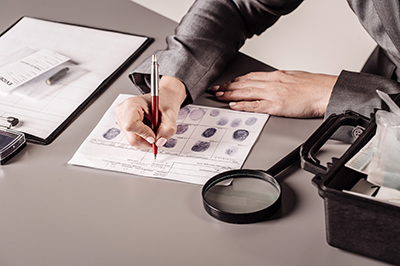
Investigators and detectives might not rely upon you to examine clues to identify and find the specific perpetrator. Instead, your observations and conclusions present for police a profile of the likely criminal, so that these officials may know where to set their sights.
Your assignments as a criminologist, especially if you work in academia, likely will keep you from witnessing crime scenes or active investigations. If you have a more academic or scholarly bent, your typical day may involve more time at libraries or other places where you can get information about crimes.
A day in the life of a criminologist includes interviews with victims, perpetrators, investigators and others with knowledge about crime or societal factors influencing the behaviors. You’ll read many investigative notes or academic journals dealing with behavioral science. Ultimately, much of your work will involve paperwork in the form of preparing reports based upon either general research or your research as applied to a particular crime or criminal.
Research and Analysis
Critical thinking skills form a prominent part of a criminologist job description. The analysis of that’s up and other information on crimes leads to conclusions about the causes of crime. As a criminologist, you focus on psychological and sociological contributors to crime. In this work, you may look for ways in which the behavior differs from the accepted norms in society.
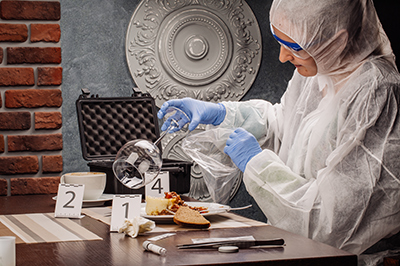
To that end, you will likely find yourself consulting a number of sources for the information. News stories and documentaries chronicle many details about specific crime or criminals. Federal crime statistics may also help you form conclusions about criminals.In many cases, your research into the individuals allows you to form a description of their psychological, social, economic and other backgrounds.
Face-to-face contact with a criminals does not stand outside the realm of the job description. You may find a criminal offender willing to describe their family upbringing, the environment in which they were raised and incidents that may have triggered psychological or mental problems or their decisions to pursue crime.
As a form of sociology, the practice of criminology likely will have you designing and conducting surveys, along with interviews and research of cases.
Looking at the Scenes of Crime
You’re called to accompany police detectives and officers to a home that has become a gruesome murder scene.
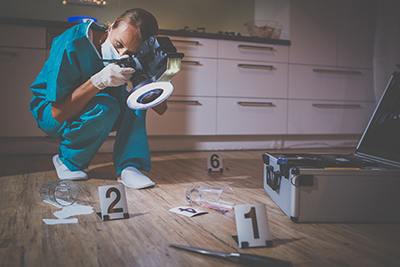
Upon arrival, you examine a dead body with lacerations, numerous blood spots and splatters on walls and words dipped in blood on a mirror. Such a scene might mimic something you’ve seen in a crime thriller.
Although crime scenes will differ by the particular crime and criminal, you can expect to encounter very unpleasant sights. You should also have a high degree of mental and emotional stamina to examine corpses and otherwise participate in autopsies.
For white collar crime, you’re less likely to encounter such disturbing visuals. Instead, you may see a work space is neat and tidy or, at worst, disorganized paperwork in search of a proper file folder or box. You might study the leadership and supervisory skills of managers, the discipline of employees and physical structures that may contribute to fraud or other financial criminal conduct.
The Highs and Lows
Professions in the behavioral sciences come with a lot of critical thinking. This can lead to the intellectual satisfaction of reaching conclusions and offering opinions that may help others solve crime. In many cases, the discipline of sociology allow you to examine broader social causes of crime. This form of study allows you to contribute to policies and laws that can reduce crime and improve the overall human condition.
The nature and types of crimes have expanded well beyond those in existence when criminology was an infant discipline. Technology and growing international affairs and influences have spawned white collar crimes (such as securities fraud, large-scale embezzlement, tax evasion), serious computer and identity theft and bias crimes. Your work may involve determining the effects of geopolitical or long-standing ethnic or other social conflicts and psychological factors upon how certain individuals may become radicalized to commit terrorist acts.
Criminology does have some significant drawbacks or sources of frustration. Many of your assignments will take you to grotesque scenes and people ravaged by violent behavior. You will find yourself exposed to the sight of blood, sometimes fresh, dismembered bodies and other stark images of death or intense violence.
Additionally, there arises considerable paperwork. The reports you prepare may span several pages and cover many significant and intricate details. For the fascination of critical thinking, you are also delving into depressing subjects. After all, serious crime is a manifestation of the depravity of and evil in human beings. Even non-violent offenders, especially in the financial or cyber arenas, exhibit characteristics of being sociopaths.
The Workplace(s)
Law enforcement agencies employ a large number of criminologists.
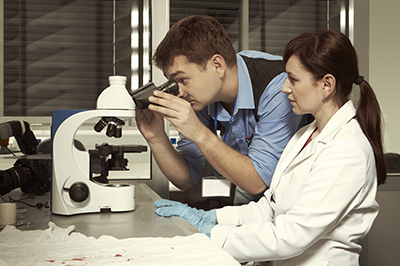
The Federal Bureau of Investigation offers some of these through its Behavioral Sciences Unit and other sections of the Bureau. Larger police and sheriff’s offices and crime-fighting agencies at the state level can also afford qualified applicants positions.
Beyond public agencies tasked with crime prevention, criminologists may reside among the halls of colleges and universities. Positions in academia include teaching or research in behavioral sciences, criminal justice, criminology, sociology and psychology departments. Become a tenured professor in criminology or a related field often requires a doctorate or other advanced degree.
Criminology opens your mind and intellect to a broad base of knowledge and situations. You also have the capacity to affect reduction in crime and the forces your research and analysis says lead to crime. An internship with a criminal justice agency, social worker, local or state social services or colleges with relevant academic departments can lead you on the criminology career path.